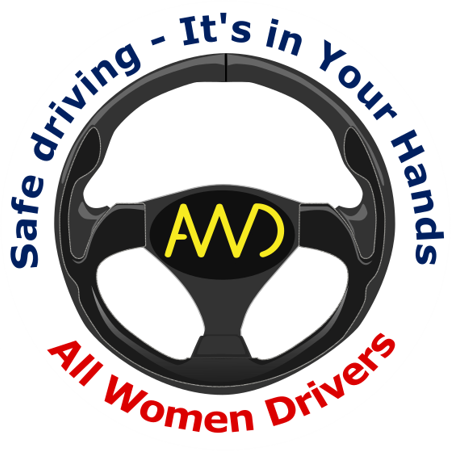Do you suffer from driving anxiety? You are not the only one who feels overwhelmed by the fear and anxiety that comes when you are behind the wheel. The good news is that many ways exist to overcome the fear of driving. In this piece, we’ll talk about different ways to overcome driving anxiety and become more confident.
1. Understanding Driving Anxiety
Driving anxiety is a mental condition marked by a strong fear or worry about driving a car. It can show up as a fear of losing control, getting into a crash, or being judged by other drivers. This anxiety often leads to avoiding situations, which makes it hard for people to do normal things like driving.
2. Figuring out what went wrong

It’s important to note that “driver” refers to the person in charge of driving. It could be because of a bad driving experience from the past, a fear of the unknown, or worries about driving on roads or at busy intersections. Hence, understanding the root reasons for your anxiety can help you develop specific ways to deal with it.
3. Therapy called “gradual exposure.”
Gradual exposure treatment is a common way to help people overcome their fears and worries. At first, start by putting yourself in driving situations that make you nervous, starting with easier ones and moving up to more difficult ones over time. Using this step-by-step method, you can gain confidence and become less sensitive to the things that cause anxiety.
4. Techniques for breathing and calming down
Deep breathing and other ways to calm down are strong ways to deal with anxiety. Before and while driving, try taking slow, deep breaths to calm your nervous system. Use progressive muscle relaxation and mindfulness to help you stay in the moment and pay attention while driving.
5. Cognitive Restructuring
Cognitive restructuring means finding and questioning negative thoughts, then changing them with more positive and realistic ones. Regarding driving anxiety, recognize and replace negative thoughts like “I will get into an accident” with more realistic thoughts like “I have the skills and knowledge to drive safely.”
6. Getting help from a professional

If your driving anxiety doesn’t go away no matter what you do, you might want to talk to a professional. However, using a mental health professional’s services to treat anxiety conditions is necessary.
7. Joining a group for help
Meeting people who have been through similar things can be very helpful. So, think about joining a group for people with driving anxiety. Sharing your fears and successes with people who know what you’re going through can give you a sense of community and help you along your road.
8. Use positive affirmations and visualisations
Visualization and positive mantras are great ways to change how your mind works. Imagine yourself driving with confidence and calm when things get tough. To increase your self-belief and overcome anxiety, repeat positive statements like “I am a capable and confident driver.”
9. Getting better at defensive driving
Taking on defensive driving habits can give you more confidence on the road. Moreover, stay alert, consider what could go wrong, and keep a safe distance behind the car. Taking action and being aware of your surroundings can reduce the chance of an accident and make you feel more in charge.
10. Keeping a healthy way of life
A healthy way of life is good for your general and mental health. You can exercise regularly, eat a healthy, balanced diet and have enough sleep as a priority. Taking care of your body can improve your happiness and lessen anxiety symptoms.
11. Making goals that can be reached
Set small goals that you can reach to move out of your driving comfort zone slowly. Start with short trips to places you know well and gradually make your trips longer or more complicated. Celebrate each step to show how far you’ve come and give yourself more confidence.
12. Getting more sure of yourself through experience
Experience is one of the most important ways to gain confidence behind the wheel. The more you drive and put yourself in different driving situations, the more comfortable and sure of yourself you will become. Hence, take advantage of chances to drive and push yourself in a safe and controlled setting.
13.Getting the Most Out of Driving Lessons

People with driving anxiety can benefit greatly from taking driving lessons. Sign up for a driving school that is known to be good, and that has lessons for nervous drivers. You can overcome your fears with the help of professional driving instructors who can offer direction, assurance, and useful methods.
14. How to Stop Worrying About Tests
Many people with driving anxiety also have test anxiety, especially when getting ready for their driving tests. Prepare well by learning what you need to know for the test and practicing driving skills often. Consider using relaxation methods and positive imagery to deal with the stress of a test.
15. Why self-care is important
It’s important to put your needs first to overcome driving anxiety. Do things for yourself daily, like meditation, hobbies, spending time with loved ones, and taking breaks when needed. Your general health will improve if you care for yourself physically, emotionally, and mentally.
Conclusion
Many people have trouble with driving anxiety, but it’s not impossible to get over it. The best way to get started is to learn more about the process. Don’t give up on yourself, and remember to celebrate your growth. You can learn how to drive confidently and skillfully with time and practice.
FAQs
How common is anxiety while driving?
A lot of people experience driving anxiety, which is fairly normal.
Can taking driving lessons help with anxiety?
Driving lessons, especially for nervous drivers, can be very helpful.
Is it possible to overcome driving anxiety for good?
Everyone’s experience is different, but with the right techniques and help, driving anxiety can be greatly reduced and managed.
How long does it take to stop being afraid to drive?
The time it takes to get over driving anxiety depends on the person. It depends on how bad the anxiety is, how well the person is doing, and how often they use tactics.
What should I do if I can’t get rid of my anxiety, no matter how hard I try?
If your anxiety doesn’t go away, you might want to talk to a mental health worker specializing in anxiety disorders for help.


